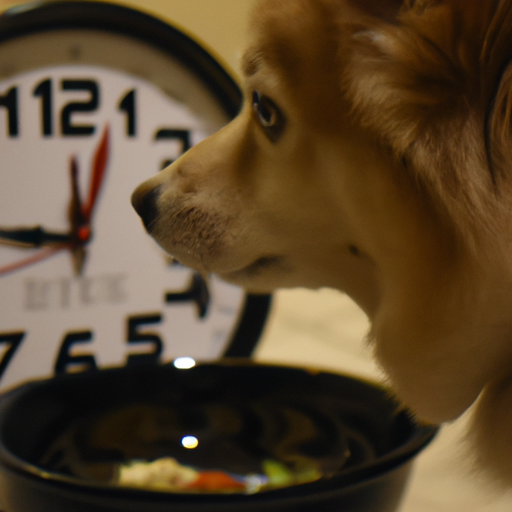Understanding Your Dog’s Dietary Needs
First and foremost, it’s essential to understand that your dog’s dietary needs are not the same as yours. Just like you, your furry friend has specific nutritional requirements that need to be met to ensure optimal health. A dog’s diet should be balanced and complete, providing all the necessary nutrients, vitamins, and minerals needed for growth, maintenance, and overall health.
As a caregiver, you need to ensure that your pet’s diet is not only nutritious but also appropriate for their age, breed, size, and health status. Remember, what works for a small breed puppy won’t be the same for a senior large breed dog.
How Often Should You Feed Your Dog?
The frequency of feeding your dog can vary based on several factors:
- Puppies: Young dogs, especially those under six months, require several small meals throughout the day, typically around three to four times. This helps support their rapid growth and development.
- Adult Dogs: Adult dogs, on the other hand, usually do well with two meals per day.
- Senior Dogs: Older dogs, depending on their health status, may require special diets and feeding schedules. It would be best to consult with your vet.
Here is a simple table to illustrate:
| Age of Dog | Number of Meals per Day |
|---|---|
| Puppy (<6 months) | 3-4 |
| Adult | 2 |
| Senior | Varies (Consult with vet) |
Considerations When Determining Feeding Frequency
When deciding how often to feed your dog, you should consider the following:
- Breed: Different dog breeds have different nutritional needs. For instance, large breed dogs may require more food than smaller breeds.
- Activity Level: Active dogs may need more frequent meals or larger portions to fuel their energy levels.
- Health Status: Dogs with certain health conditions may require special feeding schedules or diets. Always consult with your vet if your dog has a health condition.
The Importance of Regular Feeding Times
Establishing regular feeding times can be beneficial for your dog. It can help regulate their digestive system and make them feel more secure and at ease. Plus, it can help you monitor their appetite and notice any changes that may signal health concerns.
FAQs
Q: Can I free-feed my dog?
A: Free-feeding, or leaving food out all day for your dog to eat at their leisure, can lead to overeating and obesity. It’s generally best to have set meal times.
Q: How much food should I give my dog?
A: The amount of food your dog needs can depend on their age, size, breed, and activity level. Check the feeding guidelines on your dog food packaging or consult with your vet.
Q: Can I feed my dog once a day?
A: While some dogs do well with one meal a day, most dogs, especially active ones, benefit from having two meals a day.
Remember, when it comes to feeding your dog, it’s always best to consult with a professional. Your vet can provide guidance based on your dog’s specific needs and circumstances.



